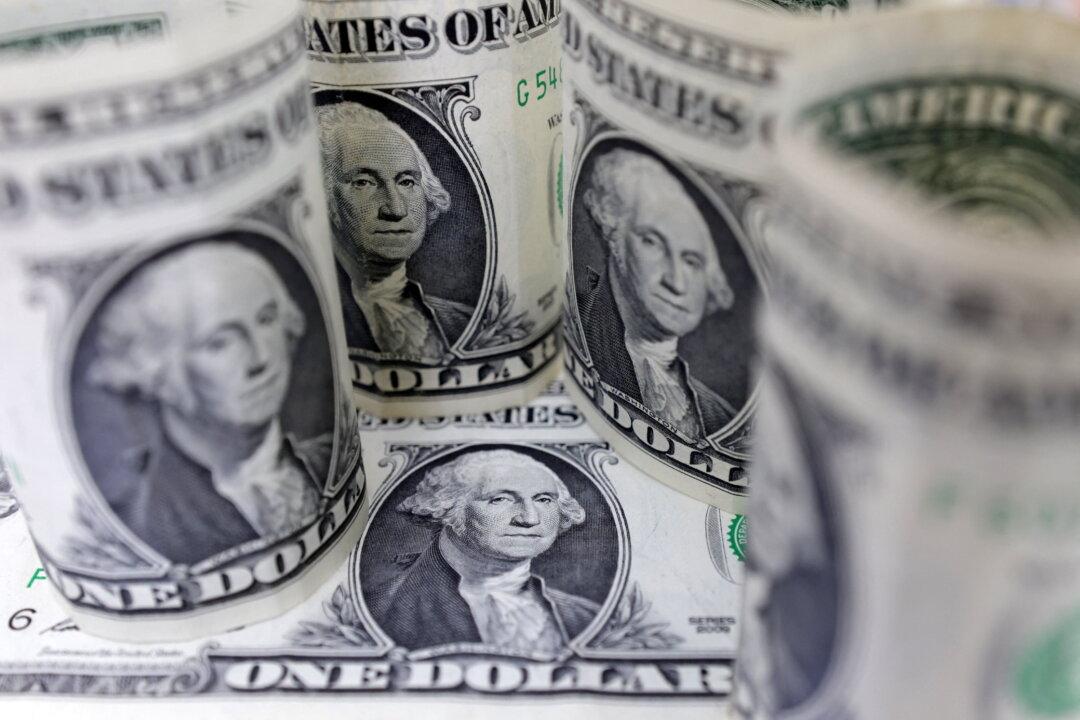LONDON—The dollar seesawed around two-month lows on Thursday, as traders weighed up how pivotal U.S. jobs data coming out on a stock trading holiday might impact Federal Reserve policy, and unleash a potentially volatile market reaction.
The closely watched U.S. non-farm payrolls report on Friday, when many markets around the world are closed, will follow disappointing manufacturing and services sector data from the Institute for Supply Management (ISM) and private employment figures on Wednesday.





